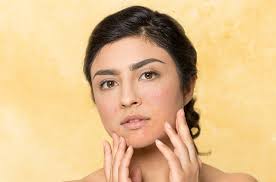
Understanding Sun Sensitivity and Sun Allergies: Causes, Symptoms, and Solutions
Many people enjoy spending time outdoors, soaking in the warmth and brightness of the sun. However, for some individuals, sun exposure can lead to uncomfortable and sometimes serious skin reactions. If you’ve noticed that your skin becomes irritated, red, or inflamed after being in the sun, you might be experiencing sun sensitivity or even a sun allergy.
This comprehensive guide explores the causes of sun sensitivity, including allergies, medications, skin care products, and even certain foods.
It will also provide guidance on how to prevent and manage these reactions effectively.
What Is Sun Sensitivity?
Sun sensitivity, also known as photosensitivity, is an abnormal skin reaction to ultraviolet (UV) rays from sunlight.
It can present in a variety of ways, such as redness, inflammation, blistering, or dark patches after sun exposure.
While it can affect anyone, some people are more prone to it due to certain medications, medical conditions, or exposure to specific chemicals or substances.
Photosensitivity can manifest as two main types of reactions:
Phototoxic reactions
Photoallergic reactions
Both of these can result in visible skin damage, discomfort, and longer-term problems such as hyperpigmentation and premature skin aging.
What Causes Sudden Sun Sensitivity?
If you’ve recently become sensitive to the sun, it may be due to something you’ve applied to your skin or a medication you’re taking.
This sensitivity can occur unexpectedly and may increase your risk of sunburn, hyperpigmentation, and skin aging. Understanding the causes is crucial to protecting your skin.
1. Medications That Trigger Sun Sensitivity
Many prescription and over-the-counter medications can make your skin more sensitive to UV rays.
When you’re taking these medications, exposure to sunlight can result in exaggerated sunburns or rashes, even with minimal time spent outdoors.
These medications can cause either phototoxic or photoallergic reactions.
Common medication categories associated with sun sensitivity include:
Medications Used in Phototherapy:
Methoxsalen, Psoralens, Trioxsalen
These are sometimes used in controlled settings for conditions like vitiligo or psoriasis but can make the skin highly photosensitive.
Acne Medications:
Isotretinoin (Accutane), Tetracycline, Doxycycline, Trimethoprim/Sulfamethoxazole (Bactrim)
Antibiotics:
Ciprofloxacin (Cipro), Levofloxacin, Ofloxacin, Griseofulvin, Tetracycline family drugs
Antifungals:
Voriconazole, Flucytosine, Griseofulvin
Antihistamines:
Diphenhydramine, Cetirizine,Loratadine, Promethazine, Cyproheptadine
Blood Pressure and Heart Medications:
ACE Inhibitors (e.g., Enalapril), Calcium Channel Blockers (e.g., Diltiazem, Nifedipine), Amiodarone, Valsartan, Quinidine
Cholesterol Medications (Statins):
Atorvastatin, Simvastatin, Lovastatin, Pravastatin
Diabetes Medications:
Glyburide, Glipizide (Glucotrol)
Diuretics:
Furosemide (Lasix), Hydrochlorothiazide, Triamterene, Chlorthalidone
Psychiatric Medications:
Haloperidol, Quetiapine, Olanzapine, Risperidone
Antidepressants:
Amitriptyline, Doxepin, Imipramine, Nortriptyline
Hormones:
Estrogen
NSAIDs (Non-Steroidal Anti-Inflammatory Drugs):
Ibuprofen, Naproxen, Ketoprofen, Celecoxib, Piroxicam (Feldene)
Sulfonamides:
Sulfasalazine, Sulfamethoxazole, Sulfapyridine, Sulfasoxazole, Sulfamethizole, Sulfadiazine, Acetazolamide
Types of Reactions
Photoallergic Reactions
Photoallergic reactions occur when a chemical applied to the skin is altered by sunlight and becomes an allergen.
The immune system then reacts, often leading to redness, itchiness, rashes, or hives, especially in sun-exposed areas.
This type of reaction may not occur immediately—it can take 24 to 72 hours to develop and may spread to areas of the body that weren’t even exposed to the sun.
Common photoallergens include:
Sunscreen Ingredients:
Avobenzone, Octocrylene, Octinoxate, Benzophenone-3, -4, Ensulizole
Fragrances:
Balsam of Peru, Bergamot oil, Citronellol, Citrus extracts, Musk ambrette, Coumarin
Oils:
Peanut oil, Oil of Bergamot
Phototoxic Reactions
Unlike photoallergic responses, phototoxic reactions do not involve the immune system. Instead, a chemical on or in your body becomes toxic when exposed to sunlight.
The reaction usually occurs within minutes to hours of sun exposure and resembles a severe sunburn, often accompanied by blistering and swelling.
These reactions are dose-dependent, meaning that more sun exposure or more of the chemical will produce a more severe reaction. This is the most common form of drug-induced photosensitivity.
Topical Retinoids and Sun Sensitivity: Myth vs. Reality
Many people believe that using topical retinoids like retinol or tretinoin makes the skin more sensitive to the sun. However, research suggests this is somewhat of a myth.
These products do not increase your skin’s UV sensitivity but can make your skin more prone to irritation, dryness, and peeling, which may make sun exposure feel more uncomfortable.
You should still wear sunscreen when using retinoids, but they aren’t classified as photoallergens or phototoxins.
Can Vitamins Cause Sun Sensitivity?
Generally, vitamins themselves don’t make your skin more sensitive to the sun.
However, a deficiency in Vitamin B3 (Niacin) can cause pellagra, a condition that includes sun sensitivity among its symptoms.
On the flip side, certain supplements, such as Polypodium leucotomos (a tropical fern extract), Vitamin C, and Vitamin E, may help reduce sun sensitivity by acting as antioxidants.
Foods That Can Cause Sun Sensitivity
Surprisingly, some foods can make your skin more sensitive to sunlight, especially if their juice or oils remain on the skin.
This condition is called phytophotodermatitis and can cause burning, redness, and dark patches where the skin was exposed to sunlight.
Common culprits include:
Limes, Celery, Carrots, Figs, Parsley, Dill
For example, making a cocktail with lime and then going out into the sun can lead to painful rashes or discoloration where the juice contacted your skin.
Recognizing the Symptoms of Sun Sensitivity
If you are sun-sensitive, you may notice one or more of the following symptoms after sun exposure:
Redness or flushing
Hives or welts
Blisters or peeling
Itching or burning sensation
Tanning or dark patches (hyperpigmentation)
These symptoms typically occur on areas exposed to the sun, such as the face, neck, arms, and chest.
However, in some cases—especially with photoallergic reactions—the symptoms can spread to other parts of the body.
How to Protect Yourself From Sun Sensitivity
Whether your sun sensitivity is caused by medication, skincare products, or something else, here are essential tips to protect your skin:
Use a Broad-Spectrum Sunscreen: Choose a mineral-based sunscreen containing zinc oxide or titanium dioxide, especially if you’re sensitive to chemical sunscreens.
Read Product Labels Carefully: Avoid known photoallergens, especially in fragrances and sunscreens.
Wear Protective Clothing: Long sleeves, wide-brimmed hats, and sunglasses provide physical protection.
Limit Sun Exposure: Stay out of the sun between 10 AM and 4 PM, when UV rays are strongest.
Consult a Healthcare Provider: If you suspect a medication is causing your symptoms, talk to your doctor. They may adjust your prescription or offer alternatives.
Conclusion
Sun sensitivity can have many causes, from medications and topical products to certain foods and medical conditions.
Knowing what’s triggering your reaction is the first step toward effective prevention.
With the right precautions—sun protection, product awareness, and professional advice—you can manage or even avoid these uncomfortable and potentially harmful skin reactions altogether.
If you’ve recently noticed unusual reactions to sunlight, review any new medications, personal care products, or dietary changes.
Then, take steps to protect your skin so you can continue enjoying the sun safely and confidently.


